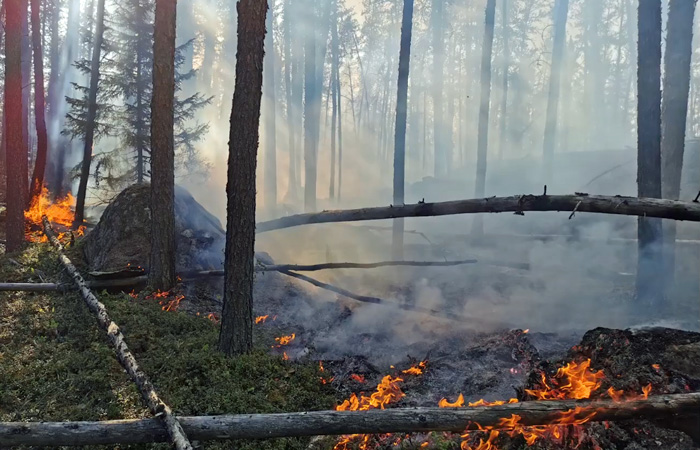With the arrival of warmer weather, the province reminds Manitobans to be careful with any spring burning activities and to ensure they have the required burn permits from either their local municipalities or the province.
“We all look forward to the warm weather but we must remember that when conditions are dry, the risk of wildfire increases,” said Conservation and Climate Minister Sarah Guillemard. “The Manitoba Wildfire Service and municipalities are getting ready for another season, and we must all do our part to minimize the risks.”
Southern and central Manitoba are especially dry this spring because of low moisture levels last fall before lower-than-normal winter snow accumulations. The dangers of spring wildfires have increased in the central and southern regions of the province due to the dry conditions and as a precaution, restrictions on travel and burning have been implemented in some areas. In areas affected by such conditions, provincial burn permits may be limited to essential burning operations or could be cancelled entirely. The public is reminded to contact their municipalities or their local Manitoba Conservation and Climate offices for updates. The latest information on municipal and provincial burning restrictions can be found at manitoba.ca. Provincial burn permits will not be issued for areas where municipalities have implemented burning restrictions.
Permit holders are reminded to check weather conditions, have adequate suppression equipment and ensure proper fuel breaks are in place before burning. They should never leave an outdoor fire unattended and always extinguish it before departing.
As Manitobans begin spring cleanups, the province urges caution in their removal of grass and leaves or crop residue from fields.
As part of the Manitoba Wildfire Service’s prevention and mitigation programming efforts, an additional $460,000 has been invested across the province this past year. Recent partnerships include involvement with Partners in Protection/FireSmart Canada in the development of wildfire prevention and mitigation materials that are relatable and relevant to Indigenous communities across Canada. This project includes support for the printing and distribution of Blazing the Trail – Celebrating Indigenous Fire Stewardship, a publication promoting action to ensure wildfire-resilient communities. Also included is support for an exhibit and educational outreach through the Boreal Discovery Centre at Nisichawayasihk Cree Nation’s traditional territory in Thompson. Programming addresses boreal forest fire ecology, fire weather and Indigenous fire management.
The Remote Lodge and Outfitter Mitigation Program is a unique effort to make specialized fire equipment, such as sprinkler systems, available to eligible lodges and outfitters across Manitoba to promote FireSmart planning and preparation. This program will ensure that lodges in remote areas are able to protect themselves from approaching fires prior to support from the Manitoba Wildfire Service.
Other important projects include the development of a comprehensive wildfire management strategy for Whiteshell Provincial Park and upgrades to the Manitoba Wildfire Service weather monitoring stations across the province. The Whiteshell wildfire management strategy has been developed in consultation with many stakeholders, including the Whiteshell Cottagers Association, and will guide provincial efforts in future mitigation and response.
Preparedness efforts include an investment of $774,000 for salaries and other costs to support the hiring of an additional five initial-attack fire crews, consisting of 25 members, for this wildfire season. These highly mobile crews will be assigned to existing bases around the province for deployment to wherever they are needed. As an important proactive measure, the province will implement a COVID-19 rapid testing program at Manitoba Wildfire Service bases to protect front-line staff and partners.
The province has also recently committed $2.6 million for avionics and communications upgrades to its water bomber fleet, to allow these aircraft to be deployed to the U.S. if assistance is requested and if the aircraft are not needed in Manitoba.
To report a wildfire, call 911, the local emergency number in areas not covered by 911, or the provincial T.I.P. line toll-free at 1-800-782-0076.




